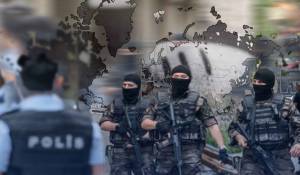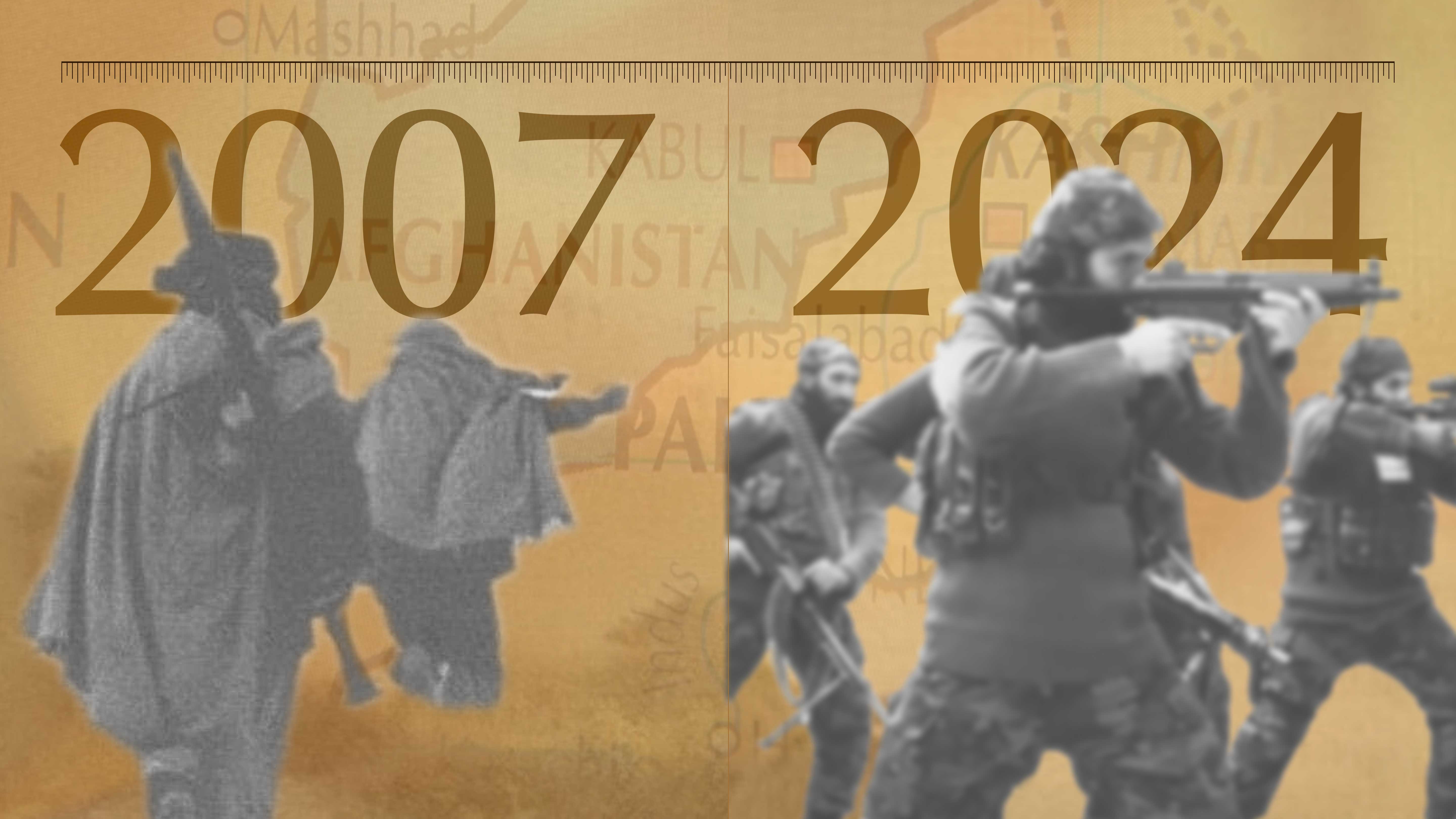
Ihsanullah Tipu Mehsud

March 04, 2026

The Tehreek-e-Taliban Pakistan (TTP) has undergone substantial transformations since its inception in December 2007. Under the two previous leaderships, Mawlana Fazlullah Khorasani and Hakeemullah Mehsud, the TTP operated more like a ragtag tribal Jihadi militia marked by indiscriminate attacks on civilians and security forces alike which led to its internal fragmentation, the alienation of like-minded jihadist groups, and a lack of clear objectives, ideology, and organizational discipline within the group.
Al-Qaeda, including both the core and its regional franchise, Al-Qaeda in the Indian Sub-continent (AQIS), noticeably distanced themselves from the TTP even though both were previously considered as deeply interlinked, and both had orchestrated several joint high-profile operations across Pakistan and Afghanistan against local and foreign targets. Both entities used to provide each other with fighters including the suicide attackers for operations. But then a time came when Al-Qaeda even abandoned operational collaboration with TTP over the later “illegitimate” activities. TTP is also somehow regarded as a brainchild of Al-Qaeda, as in 2007, Al-Qaeda leaders in Pakistan, Sheikh Abu Yahya al-Libi and Sheikh Atiyah Abd al-Rahman made several suggestions while the TTP was drawing its first constitutional document
However, Al-Qaeda gradually limited its ties with the core leadership of the TTP, restricting them to just a handful of individuals within the organization. Insights from insiders well-versed in the internal deliberations of the TTP's central shura between 2009 and 2016 reveal that the Afghan Taliban also repeatedly expressed concerns to the TTP's leadership, especially regarding its operational activities. This friction resulted in internal schisms within the group, with key commanders criticizing the leadership for actions they deemed "un-Islamic" and "unfair” – activities that were seen as severely undermining the organization's true objectives.
Instead of focusing on expanding the organization, senior commanders were more concerned about solidifying their own power and status. Eventually, the TTP's focus shifted entirely towards seeking vengeance, resembling a traditional tribal mentality of perpetual enmity.
Another blunder the group made was the overstretching of its operations by taking on several entities, such as the Pakistani government, the United States, and the forces of the North Atlantic Treaty Organization (NATO). Additionally, they encountered conflicts with the Afghan national army and police, in Pakistan apart from the Pakistani government, the group started targeting local tribal elders, minorities, and opposing religious scholars. Consequently, this policy not only made them a primary target for American drones, which eliminated their entire leadership, but it also rapidly eroded the local support they once enjoyed.
TTP's Attempt to Rebrand and Gain Legitimacy
To rectify its organizational structure, redefine its strategies and gain influence in public, the new leadership of the TTP has implemented several new measures. For instance, the group’s new leadership has released a document outlining a "code of conduct,", constantly updated in the last few years, directing its fighters for targeting security officials, law enforcement agencies and those aiding them but exercising extreme restraint in attacks against civilians. Displaying audacity, the new leader of the TTP went so far as to author a comprehensive book that revealed the errors made by the organization's previous leadership.
The TTP's newly adopted code of conduct represents an approach primarily aimed at winning local support and gaining the favour of the community. The focus of attacks has shifted primarily towards security forces, with a concerted effort to minimize harm to civilians.
It is also worth noticing that the new TTP has embraced a higher level of discipline, enforcing stringent rules that have even resulted in the expulsion of veteran commanders over organisational violations.
To penetrate into the youth bulge of Pakistan which constitutes a significant portion of the population, the TTP has launched a propaganda blitz focused on issues such as poor governance, grievances of local communities, instances of state authorities abusing power, enforced disappearances and corruption. By presenting themselves as advocates for the marginalized, the TTP seeks to convince its intended audience to join forces against Pakistan's current governance structure and replace it with their version of Sharia law.
In recent years, the group has set up multiple departments, each with its distinct responsibilities and designated scope, operating freely from interference from other departments, enhancing efficiency and effectiveness.
For example, the propaganda department refrains from interfering in operational activities, allowing each department to focus on its designated tasks.
The TTP is also adapting to the advancements in technology, leveraging them to increase its public outreach and carry out operational activities more effectively. The outfit is continuously exploring novel approaches to outperform and evade the efforts of law enforcement agencies (LEAs). As a result, the emerging generation of tech-savvy TTP militants is employing innovative methods and exploiting every security loophole available to them.
During investigations into the recent rise of targeted assassinations of police officers in Southern Khyber Pakhtunkhwa (KP), investigative agencies have pointed out the failure of the police to adhere to security protocols, which has inadvertently aided militants in targeting them.
The probe further revealed that during their duty, police personnel have been found to share their live locations on social media platforms, particularly Facebook. The practice provided militants with the means to track the whereabouts of police officers, resulting in targeted attacks.
For instance, on April 4, an incident took place in the Lakki Marwat district of Khyber Pakhtunkhwa where a Deputy Superintendent of Police (DSP) and two police guards were killed. The officer had shared a video on Facebook while on duty, allowing the militants to swiftly arrive at the location and target them.
Moreover, the TTP is actively working on increasing its membership and strengthening its ranks. In a recent Eid congratulatory statement, the TTP leader, Mufti Noor Wali Mehsud, claimed that his organization had seen the addition of 4,000 recruits in 2023 alone. While it is common for militants to exaggerate their claims, even if the actual figure is around 500 fighters, it is still a matter of serious concern. This recruitment trend sets a precedent for potential future waves of enlistment, which will further enhance the operational capabilities of the TTP.
Civil-Military Divide Emboldens TTP
The enduring civil-military divide in Pakistan, which has been fueling political instability for decades, has also provided a conducive environment that enables militancy to thrive in the country.
Militants have also capitalized on the lack of coordination between civilian and military authorities, as well as the absence of support between Provincial and Federal Governments.
The fragmented approach and lack of unified efforts by the authorities have provided militants with a favourable environment to operate and proliferate.
Addressing these gaps in coordination and establishing effective collaboration among different levels of government is crucial in countering the strength and growth of militant organizations. Ali Amin Gandapur, the Chief Executive of Khyber Pakhtunkhwa, recently addressed this issue in a press conference, shedding light on the growing expansion and influence of militants in his province.
“We have witnessed an increased number of attacks in Tank and Dera Ismail Khan districts, (Southern Khyber Pakhtunkhwa). Terrorists have (also) infiltrated Mardan and Swabi districts of Khyber Pakhtunkhwa,” Gandapur said.
He also complained about the federal government's failure to develop effective policies to tackle the issue. “The federal government should think thoroughly that this phenomenon of terrorism will not only remain confined to Khyber Pakhtunkhwa. So, when the people of KP question whether their blood is of a different hue or whether their lives are not important, they are right. It is because even when we asked for a larger police force in the province, our request was denied. Moreover, the 1% of war on terror surcharge has not been given to the province yet,” Gandapur lamented.
Civilian officials at both the federal and provincial levels often express their limited authority in dealing with militancy, attributing it to the traditional control and management of the issue by the military establishment. They argue that their ability to take assertive action and decisions is constrained by this division of power and responsibility.
On the other hand, military personnel argue that civilians are hesitant to actively engage in addressing the issue due to potential repercussions and a lack of understanding. They contend that civilians may be reluctant to take decisive action against militancy due to concerns about political fallout or insufficient knowledge of the complexities involved.
Indeed, the divide in perspectives and perceived limitations between civilian and military authorities poses significant challenges to effective collaboration and coordinated efforts in countering militancy. It is important to bridge this gap and enhance mutual understanding to find a common ground for joint action.
Recently, Maulana Fazal Rehman, leader of Pakistan's largest religious-political party, Jamiat Ulema-e-Islam (JUI-F), with significant representation in the conflict-ridden provinces of Khyber Pakhtunkhwa and Balochistan, has urged the military to withdraw from the former FATA region. In a speech to his supporters in Peshawar on May 9, he claimed that military operations have failed to yield results, and the Pakistani Taliban have returned. He alleged that 40,000 TTP fighters who had gone to Afghanistan have breached the border fence and re-entered Pakistan.
Meanwhile, senior officials in the Khyber Pakhtunkhwa government, including the Chief Minister and Advisor on Information, have publicly expressed support for re-initiating peace talks with the Pakistani Taliban, despite the military establishment's repeated vows to deal with militancy through force.
Asad Qaiser, a senior leader of the Pakistan Tehreek-e-Insaf (PTI) and former Speaker of the National Assembly, has warned that the stage is set for a new conflict in Khyber Pakhtunkhwa, where his party is in power. He vowed to strongly resist any attempts to use the province as a battleground for another war, saying, "We will vehemently oppose any attempt to use Khyber Pakhtunkhwa as a battleground for another war."
This growing divide and confusion between key civilian and military stakeholders on basic policy formulation will only embolden the militants and hinder efforts to address the complex security challenges in the region.
Militant outfits, whether jihadist or nationalist, are skilled at maintaining internal cohesion within their ranks and cunningly manipulating the discord between civilian and military authorities to their advantage.
For instance, the TTP has issued multiple threats in a series of statements, cautioning civilian authorities - specifically politicians and police - to disassociate themselves from the Pakistan military and its counter-TTP operations, threatening dire consequences if they fail to comply.
TTP Sheds Globalist Tag
The TTP's current leadership has publicly distanced itself from its long-standing ally, Al-Qaeda, asserting that maintaining ties with Al-Qaeda would undermine its strategic objectives.
“The Tehreek-e-Taliban maintains that fighting these enemies from one platform or a single unified organization will be counterproductive and against basic logic and war strategies,” TTP leader, Mufti Noor Wali Mehsud, told The Khorasan Diary in a January 2023 interview.
According to insiders, the TTP's decision to sever ties with Al-Qaeda (whether real or not) was motivated by two key factors.
Firstly, the TTP seeks to avoid being a target of the US "over the horizon" drone operation, which is currently focused on targeting the leadership of Al-Qaeda and Islamic State Khorasan Province (ISKP) in the region.
Secondly, the TTP's decision complies with the strict instructions of the Interim Afghan Government, which distances itself from any affiliation with Al-Qaeda and refutes its presence on Afghan soil.
The increasing divergence of strategies between Al-Qaeda and the TTP became more evident in 2020, when AQIS leader, Ustad Usama Mahmood and TTP prominent ideologue, Qari Muhammad Shoaib Bajauri exchanged a number of letters on determining the future strategic path of the two organisations. While AQIS leader urged the TTP to join hands with Al-Qaeda in becoming a platform for a regional struggle focused beyond Pakistan, hence avoiding that attritions between Pakistan and the newly re-formed Interim Afghan Government could undermine the latter, TTP's leadership asserted that it would be more beneficial for jihadist movement in the country that AQIS would disband and merge with the TTP, so to create a unified jihadist front.
As the two organisations could not reach a harmonized strategic trajectory, the TTP enforced its localized agenda, hence severing operational ties with the global jihadist network.
These factors indicate a strategic shift by the TTP to protect itself from external threats, particularly drone strikes, and align its actions with the prevailing geopolitical dynamics in the region.
Operational Modus Operandi
The new TTP's leadership and its affiliates are employing various tactics to target Law Enforcement Agency (LEA) personnel. Alongside traditional attacks involving Improvised Explosive Devices (IEDs), ambushes on security force convoys or checkpoints and suicide bombings, there is a recent surge in carrying out sniper attacks and targeted assassination.
Militants have adopted a new tactic of targeting security forces personnel, specifically police and Frontier Corps (FC) members when they are off-duty and spending time with their families at home. This emerging trend reveals the militants' willingness to exploit vulnerable moments when security forces are away from their duty stations, aiming to instil fear and disrupt the morale of law enforcement agencies (LEAs).
The frequency of traditional large-scale attacks by various factions of the Pakistani Taliban has decreased, with a notable shift towards targeted assassinations of security personnel. Shockingly, the average number of security forces personnel killed in these targeted attacks exceeds the number of casualties in large-scale attacks.
This strategic shift can be attributed to three key factors. Firstly, major attacks tend to provoke a strong response from the Pakistani state, which the militants aim to avoid at this moment. Secondly, big-scale attacks also put significant pressure on the Taliban interim government from Pakistan, which accuses the Afghan Taliban of harbouring the Pakistani Taliban in Afghanistan.
Lastly, the TTP's new operational "code of conduct" prioritizes minimizing civilian casualties, as complex attacks often result in civilians being caught in the crossfire.
Another shift being witnessed in the TTP’s strategy represents a departure from its previous approach of maintaining a permanent presence. Instead of occupying a territory for an extended period, the group now operates from temporary bases and regularly rotates fighters with new recruits. This tactical shift presents a challenge for the Pakistani authorities in launching a comprehensive military operation against the organization.
The Rise of a New Generation of Jihadists
The current generation of Pakistani Taliban fighters shows a greater level of battle-hardened experience compared to their predecessors. Many of these new recruits are individuals who migrated with their families following Pakistan's military operations in the Khyber Pakhtunkhwa's tribal region and Malakand division. Having lived under the influence of the Afghan Taliban, they have assimilated and actively employed the operational, administrative, and propaganda tactics of their Afghan counterparts within Pakistan.
This new generation of Jihadists is more connected to domestic and global geopolitical events and trends, making them more adaptive and resilient. They are emboldened by the success of their Afghan counterparts, the Afghan Taliban, who recaptured Afghanistan and are more ideologically driven than the previous generation, which was more tribal-influenced, less ideological and consequently undisciplined and difficult to control.